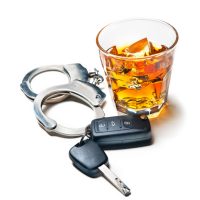Challenging Chemical Test Results in a DUI

Admissible and accurate test results usually guarantee a DUI conviction. The breath test conviction rate is over 90 percent. The blood test conviction rate is almost 100 percent. However, as outlined below, these chemical tests often aren’t admissible or accurate. Usually, an attorney doesn’t have to “prove” the results are invalid. Instead, an attorney must simply create a reasonable doubt. More on that below.
A lot is at stake in these cases. The direct consequences of a DUI conviction include high fines and strict, long-term probation. The indirect consequences, such as sky-high auto insurance rates, might be even worse. Only a very good Virginia DUI defense attorney can analyze a DUI, identify possible admissibility and accuracy issues, and leverage these issues at trial or during pretrial plea bargain negotiating sessions.
Inadmissible
Chemical test results are only admissible in court if the initial stop, DUI investigation, and arrest were all properly done.
Usually, police officers need reasonable suspicion to detain motorists. Basically, reasonable suspicion is an evidence-based hunch of criminal activity. A moving or non-moving traffic violation, such as an illegal turn or an expired sticker, clearly constitutes reasonable suspicion.
Furtive movements, such as nervous glances into a rear view mirror or appearing to conceal an item, are hunches, but not evidence-based hunches.
The dreaded and feared “have you been drinking” question usually starts DUI investigations. Many people admit drinking straightaway. Other times, police officers look for physical symptoms of alcohol use, such as:
- Bloodshot eyes,
- Slow reflexes,
- Odor of alcohol,
- Slurred speech, and
- Unsteady balance.
These symptoms only prove alcohol consumption. But at the investigation stage, as at the stop, police officers only need reasonable suspicion.
A Leesburg criminal defense lawyer can often successfully challenge probable cause for the arrest. As mentioned, physical symptoms only prove consumption. So, officers usually rely on field sobriety test results, such as the walk-and-turn, to establish probable cause.
If the defendant passes these tests with flying colors or refuses to perform them, a judge might rule that the arrest was illegal.
Inaccurate
In court, police Breathalyzer techs crow about the device’s advanced features. The more features a gadget has, the more calibration and maintenance it requires. For some reason, officers often don’t perform this simple routine maintenance. A Massachusetts judge recently threw out thousands of DUI convictions because the Breathalyzers weren’t properly calibrated.
Breath tests also have some inherent flaws, mostly because these devices rely on 1920s technology.
Excessive mouth alcohol is a good example. If the defendant burps or vomits in the fifteen minutes prior to the test, alcohol particles from the stomach flood into the mouth and skew the breath test results.
For this reason, Virginia law requires officers to closely monitor subjects for at least fifteen minutes prior to the test. But officers often ignore this key requirement as well.
To highlight this flaw, and others like it, with the jury, an attorney often partners with a degreed chemist or other such professional. These experts have much more credibility than police techs who learned almost everything they know at a brief, police department-sponsored seminar.
Rely on a Dedicated Loudoun County Lawyer
There’s a big difference between an arrest and a conviction in criminal law. For a free consultation with an experienced criminal defense attorney in Leesburg, contact Simms Showers, LLP, Attorneys at Law. Convenient payment plans are available.
Source:
one.nhtsa.gov/people/injury/research/dwiconviction/dwiconvictions.htm
